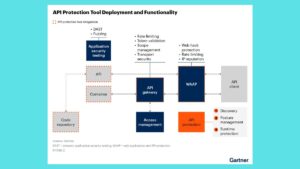HR Technology Tools: Streamlining Human Resource Management

In today’s fast-paced and competitive business environment, effective human resource management is essential for organizational success. HR technology tools are revolutionizing the way businesses manage their workforce, from recruitment and onboarding to performance management and employee engagement. This blog will explore the various types of HR technology tools available, their benefits, and how they can enhance HR processes.
What Are HR Technology Tools?
HR technology tools encompass a wide range of software solutions designed to automate and improve HR functions. These tools leverage technology to streamline HR processes, reduce administrative burdens, and provide valuable insights into workforce management. By adopting HR technology tools, organizations can enhance efficiency, improve employee experiences, and make data-driven decisions.
Types of HR Technology Tools
- Applicant Tracking Systems (ATS)
An ATS is a critical tool for streamlining the recruitment process. It helps HR teams manage job postings, track applications, screen resumes, and schedule interviews. By automating these tasks, an ATS reduces the time and effort required to find the right candidates, improving overall hiring efficiency. - Human Resource Information Systems (HRIS)
An HRIS serves as a centralized database for employee information. It allows HR professionals to manage employee records, track attendance, handle payroll, and maintain compliance with labor laws. By consolidating data in one platform, HRIS solutions improve data accuracy and facilitate efficient reporting. - Performance Management Software
Performance management tools help organizations evaluate employee performance through continuous feedback, goal tracking, and performance reviews. These tools enable managers to set clear expectations, monitor progress, and provide timely feedback, fostering a culture of accountability and growth. - Learning Management Systems (LMS)
An LMS is designed to facilitate employee training and development. It provides a platform for delivering training materials, tracking employee progress, and assessing learning outcomes. By investing in an LMS, organizations can enhance employee skills, boost productivity, and support continuous learning. - Employee Engagement Tools
These tools focus on measuring and improving employee engagement and satisfaction. They often include features such as surveys, pulse checks, and feedback mechanisms that allow organizations to gather insights on employee sentiment. By understanding employee needs and concerns, organizations can take proactive steps to enhance workplace culture. - Payroll Management Software
Payroll management tools automate the payroll process, ensuring accurate calculations for salaries, tax deductions, and benefits. By reducing manual errors and ensuring compliance with regulations, these tools save HR teams time and improve employee satisfaction regarding payment accuracy. - Benefits Administration Software
Benefits administration tools help HR teams manage employee benefits, including health insurance, retirement plans, and paid time off. These tools simplify enrollment processes, ensure compliance with regulations, and provide employees with easy access to their benefits information. - Workforce Management Software
Workforce management tools assist organizations in scheduling, time tracking, and labor management. They help optimize staffing levels, manage overtime, and improve overall workforce productivity.
Benefits of HR Technology Tools
- Increased Efficiency
By automating routine HR tasks, technology tools allow HR professionals to focus on strategic initiatives rather than administrative work. This leads to increased efficiency and productivity across the HR function. - Improved Data Accuracy
HR technology tools reduce manual data entry and human errors, leading to more accurate employee records and reporting. Accurate data is essential for informed decision-making and compliance with regulations. - Enhanced Employee Experience
HR technology tools empower employees with self-service capabilities, allowing them to manage their own information, access training materials, and provide feedback. This enhances the overall employee experience and fosters a sense of autonomy. - Data-Driven Decision Making
Many HR technology tools come equipped with analytics capabilities, enabling HR teams to gather and analyze data related to employee performance, engagement, and retention. These insights inform strategic decision-making and help organizations identify areas for improvement. - Scalability
As organizations grow, their HR needs evolve. HR technology tools are often designed to scale with the organization, providing flexibility to adapt to changing workforce dynamics.
Challenges in Implementing HR Technology Tools
While the benefits of HR technology tools are significant, organizations may face challenges during implementation:
- Resistance to Change: Employees may be hesitant to adopt new technologies. Effective change management strategies, including training and communication, are essential for a smooth transition.
- Integration Issues: Many organizations use multiple HR tools, which can lead to integration challenges. Selecting tools that offer compatibility with existing systems is crucial for a seamless experience.
- Data Privacy Concerns: With increased reliance on technology comes the responsibility to protect employee data. Organizations must prioritize data security and ensure compliance with privacy regulations.
- Cost Considerations: While many HR technology tools offer long-term cost savings, the initial investment can be a barrier for some organizations. Conducting a cost-benefit analysis can help justify the investment.
Conclusion
HR technology tools are transforming the landscape of human resource management, enabling organizations to operate more efficiently, make data-driven decisions, and enhance the employee experience. By adopting the right HR technology tools, organizations can streamline processes, improve data accuracy, and foster a positive workplace culture.
As the HR technology landscape continues to evolve, organizations must stay informed about the latest tools and trends to remain competitive. By embracing innovation and investing in the right technology, HR professionals can navigate the complexities of workforce management and drive organizational success in the digital age.






